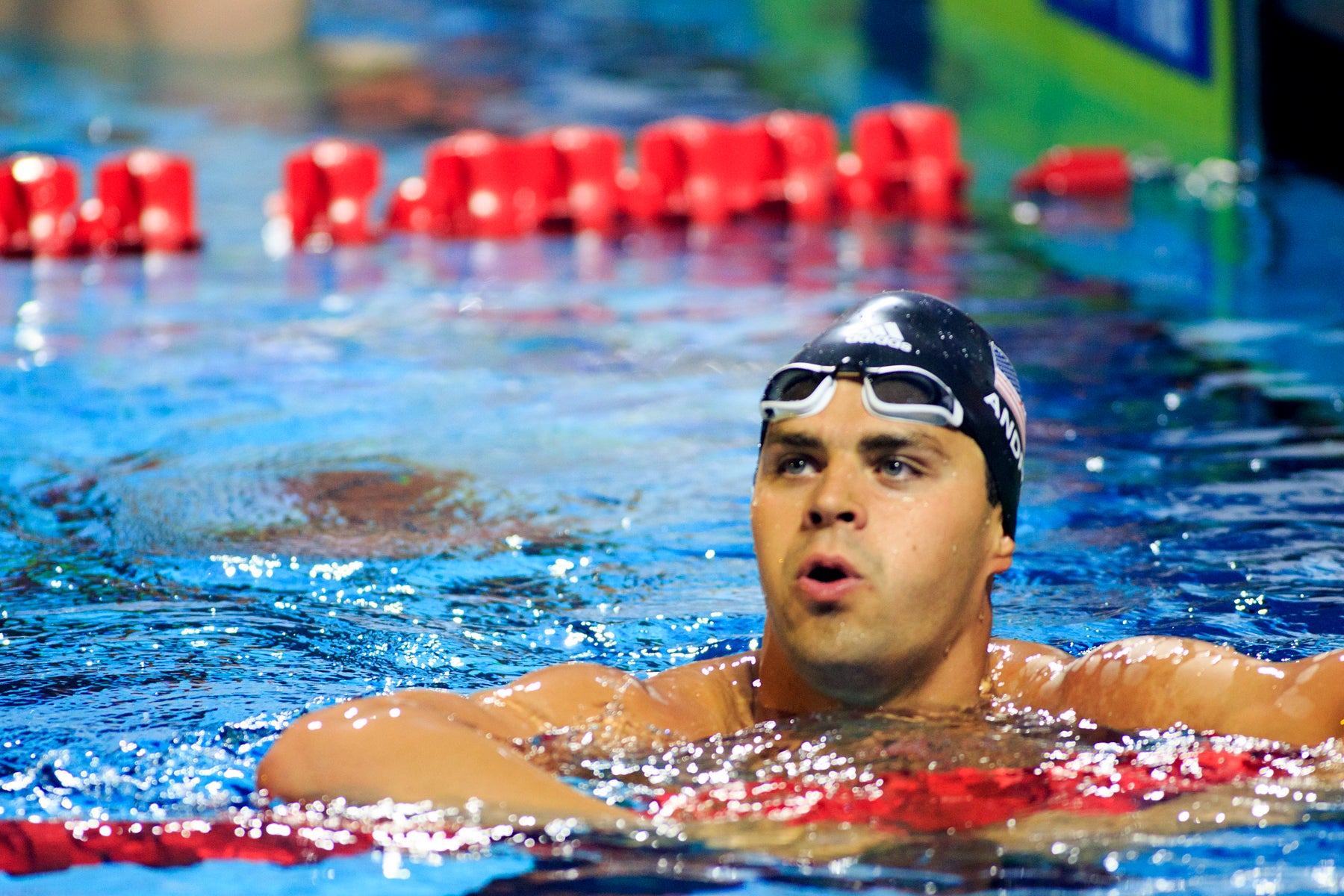Michael Andrew: What are Team USA swimmer’s anti-vaccine views?
The 22-year-old will make his Olympic debut in Tokyo

Your support helps us to tell the story
From reproductive rights to climate change to Big Tech, The Independent is on the ground when the story is developing. Whether it's investigating the financials of Elon Musk's pro-Trump PAC or producing our latest documentary, 'The A Word', which shines a light on the American women fighting for reproductive rights, we know how important it is to parse out the facts from the messaging.
At such a critical moment in US history, we need reporters on the ground. Your donation allows us to keep sending journalists to speak to both sides of the story.
The Independent is trusted by Americans across the entire political spectrum. And unlike many other quality news outlets, we choose not to lock Americans out of our reporting and analysis with paywalls. We believe quality journalism should be available to everyone, paid for by those who can afford it.
Your support makes all the difference.Tokyo 2020 will see the Olympics debut of Michael Andrew, who is, by any measure, one of the world’s best swimmers. The 22-year-old already has five short-course World Championship gold medals. At the United States of America Olympic Trials before these games he took a surprise victory in the 100-metre breaststroke; at those same trials he set the fifth-fastest 200 metre individual medley time in history.
A pool polymath, Andrew will vie with British medal hopes Adam Peaty in the 100-metre breaststroke and Ben Proud in the 50m freestyle sprint. He is the first American swimmer to qualify in breaststroke and any other non-medley event, and a genuine contender for gold in both. He is a genuinely unprecedented male swimming talent.
While teammate (and rival) Caeleb Dressel will draw much of the attention afforded their male swimmers, the multi-faceted Andrew could be the USA’s breakout star at the Olympics Aquatics Centre. He maintains a ketogenic diet and has revolutionised his training strategy, developing a style called Ultra Short Race Pace Training (USRPT) that uses blood flow restriction when Andrew trains and recover. It is almost entirely unorthodox, but based on recent returns there appears to be method to the madness.
Yet his burgeoning brilliance and unique preparation strategy is not why the focus has been on the 22-year-old as the Olympics begins. Nor is it why Team USA swimming head coach David Durden was repeatedly pressed by journalists on whether Andrew was rooming alone in Tokyo.
The reason is that Michael Andrew is unvaccinated.
“My reason behind it is -- for one, it was in the last moment, so I didn’t want to put anything in my body that I didn’t know how I would potentially react to,” Andrew explained to reporters earlier this month.
“As an athlete on the elite level, everything we do is very calculated. For me in the training cycles and especially at trials, I didn’t want to risk any days out, because there are periods where if you take a vaccine, you have to deal with some days off.”
Andrew is the only USA swimmer at these Olympics to publicly divulge that he has not been vaccinated, and the biggest name at Tokyo 2020 to have publicly stated his position on the vaccine.
As reasons for avoiding the vaccine go, there are, of course, far stranger. The need to be in peak physical condition for the Olympics is a plausible explanation, particularly for a sport like swimming in which the Games continues to hold such currency. An achey arm or bout with flu-like symptoms may matter little to the day-to-day life of the average human being, but for an Olympian, any divergence from the norm can provide a set-back.
That does not mean Andrew has escaped criticism, particularly as he has suggested he has no plans to get vaccinated once the Olympics is over. Former Olympic 200m backstroke champion Maya DiRado was among those to take issue with her former teammate’s comments, saying she was “disappointed” by his decision and believed it put teammates at risk.

Besides it could leave Andrew in a prickly situation should Covid-19 hit the USA team. While vaccines are not mandatory for the Olympics, organisers are understood to take into account an athlete’s vaccination status when considering Covid protocols and contact tracing. Andrew could find himself ruled out of the Olympics while others are allowed to compete.
“To be honest, I don’t even know if he’s in his own room or not,” Durden said about Andrew’s accommodation status earlier this week. “We have folks all over the place, etc. We are in suites as teams.
“I feel very comfortable about what he’s doing, where he’s at, how he’s operating.
“[We want Michael and the other swimmers] to feel safe, feel good about what we’re doing with our precautions as we go from here to the Village to the dining hall to the buses,” continued Durden. “It is a team thing that we’re really supporting each other on and Michael is no different in that regard.”
All of which means there will be plenty of eyes watching Andrew as he slips into the pool for the first time for the heats of the 100m breaststroke during the first evening session in the Tokyo pool. It will mark the arrival at the Olympics for one of swimming’s great talents but there is a wider narrative that may also be at stake. A gold medal (or two) for Andrew could embolden the anti-vaccination movement; a disappointing games might be regarded as a victory for his critics. However he swims, the discourse about Michael Andrew is likely far from over.
Join our commenting forum
Join thought-provoking conversations, follow other Independent readers and see their replies
Comments